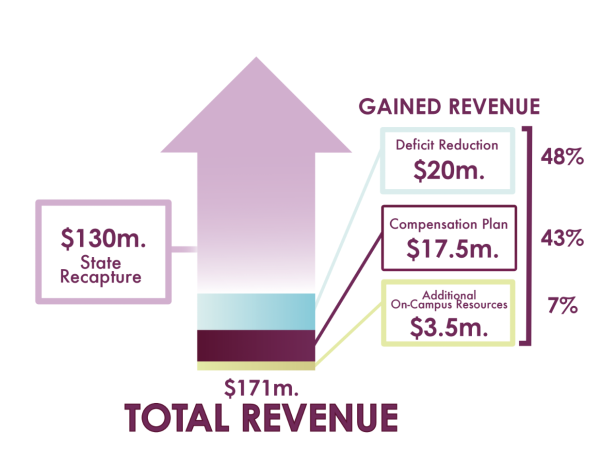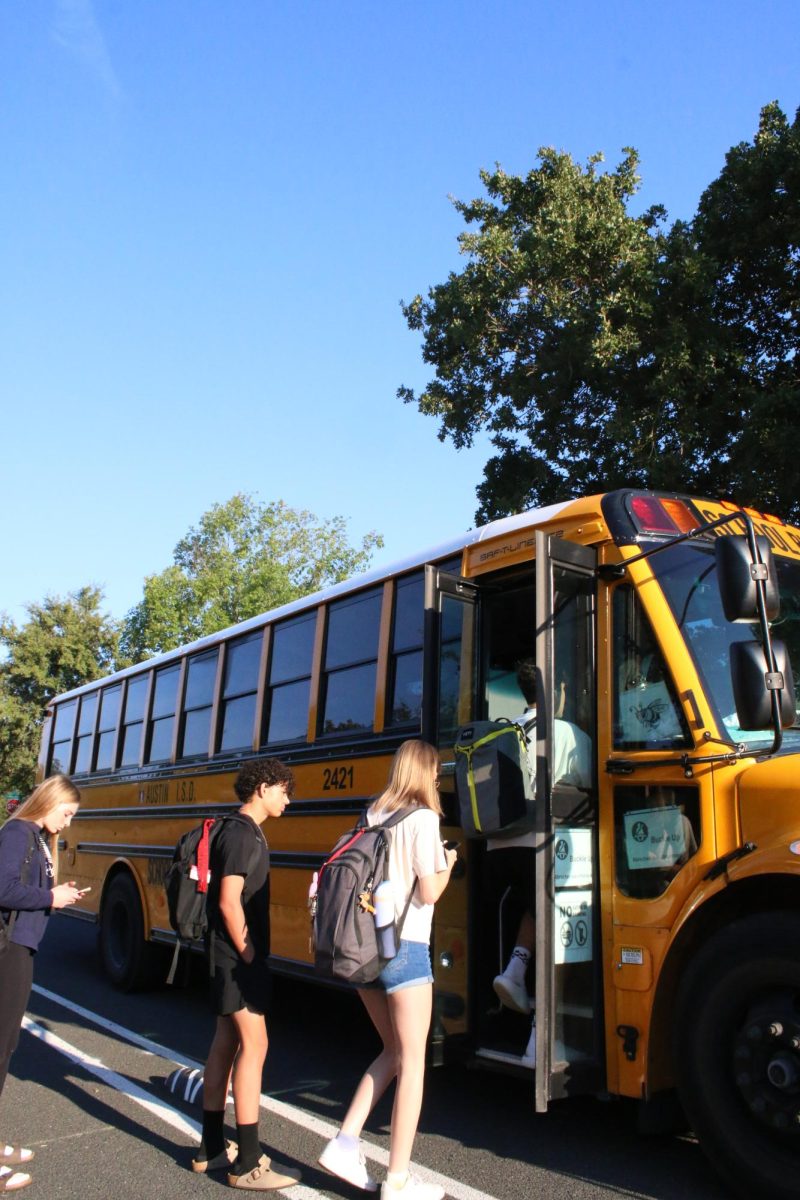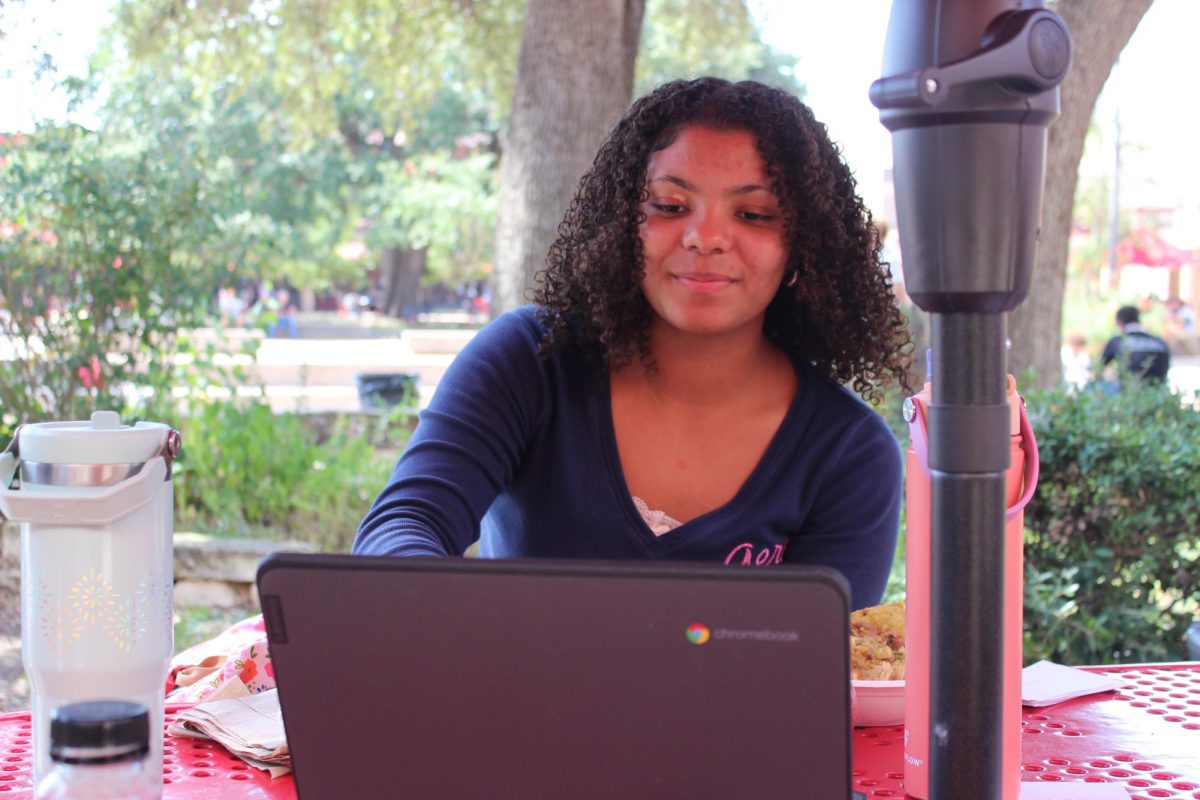A student walk through the humid hallways. Sweating as they make their way to class, due to the lack of air conditioning. This absences of AC is a result of poor school budget funding.
Facing a $119 million budget deficit, the Austin Independent School District (AISD) Board of Trustees asks Austin voters to increase their property taxes to help fund the district.
On August 19, 2024, the AISD Board of Trustees voted in approval of placing a Voter Approval Tax Ratification Election (VATRE) on Austin’s November election ballot. Bringing in additional tax revenue, a VATRE would reduce district budget cuts and increase staff compensation.

“We have one tool left,” AISD Trustee Lynn Boswell said. “We’re going to be asking our voters to approve that tax increase.”
The VATRE, named Proposition A (Prop A) on the ballot, asks voters to increase AISD’s maintenance and operation tax rate, proposing an increase of 9.1 cents per $100 of taxable value in comparison to 23-24, totaling the AISD tax rate to 95.05 cents per $100 of taxable value. This would result in a $412 annual property tax increase for the average homeowner in Austin.
“We know that when we ask for an increase in tax funds, we’re asking our community to do something that, for some people, is not easy,” Boswell said.
AISD’s 2024-25 budget totals $954 million in operating expenses, but currently, AISD has $834 million in funding, leaving a $119 million gap, or deficit, in the budget. Despite Austin taxpayers truly generating $1.525 billion in revenue for AISD, $691 million of that revenue is sent back to the state of Texas in the recapture program. Additionally, the Texas state per-student funding allotment has been virtually stagnant since 2019, as state lawmakers tie public school funding bills to politically controversial school vouchers, preventing them from passing in the Texas Legislature.
“It’s sad to me because our state has a $30 billion surplus, so we’re in a very good financial situation, but yet we want to play politics with our education system,” Business, Market and Finance teacher Mark Dawson said. “I wish our political system wasn’t so heavily involved with education funding, and it was just simply about the choices of what’s right for kids and what’s right for our schools.”
Passing Prop A would bring in an additional $171 million of revenue for AISD, but $130 million of that revenue would then be sent to the state of Texas in recapture, leaving AISD with a net revenue increase of $41 million. Meaning, that AISD would still be left facing a budget deficit of $78 million.
“Less money should be going to the problem that we’re initially trying to solve, which is, money going back to the state,” senior Julia Low said. “If this passes, it allows them to have a larger hand to continue to take money.”
Unable to incur a large amount of debt without suffering credit loss, leading to difficulty surrounding bonds and their interest rates, AISD must significantly reduce its budget deficit by tens of millions. This reduction would have to be made either through budget cuts combined with the additional revenue brought in from Prop A, or if Prop A fails to pass, solely through budget cuts.
“We are already at a point where budget cuts are going to cut into the quality of Education,” History teacher Matthew Parente said.
Additionally, Prop A would fund a compensation plan for AISD staff, which would provide market adjustments to all employee salaries, with classified employees, such as custodians and bus drivers, receiving a minimum pay increase of 25 cents per hour. Without Prop A, the compensation plan will not take effect, and the only pay increase for district staff would be a one-time incentive payment of $500 to regular, full-time employees.
“The surrounding schools are able to get teachers raises,” Dawson said. “Eventually people will just decide to leave. We’re already seeing that. So, I hope eventually we can fix this problem.”
Breaking down the proposed spending of the additional $41 million of revenue that would be gained from Prop A, $3.5 million would go towards additional campus resources, $17.5 million would go towards a compensation plan for staff, and $20 million would be used to reduce the current budget deficit, though AISD would still be left facing a $78 million deficit and budget cuts.
“We are taking what little money we have left and distributing it extremely thinly over all the things that need to happen,” Parente said. “There needs to be a more focused effort, whatever that might be, but right now we are in too many different directions and there’s not enough funds to go all the different directions. It’s basically just going to start falling apart at the seams if it hasn’t already.”











